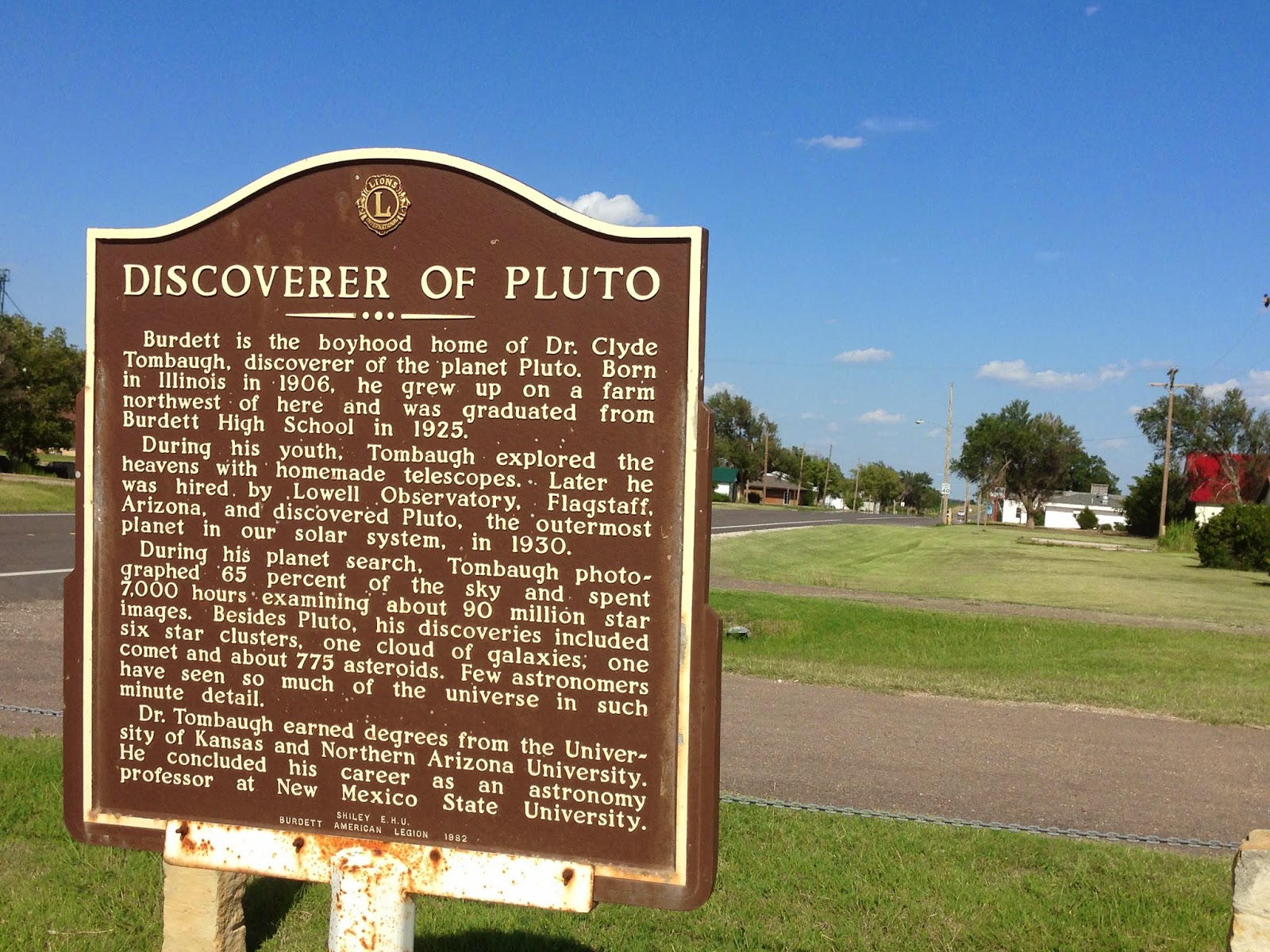Announcement: New Darwin video as of September 26--Darwin at Devil's Tower.
This is the last entry about my summer 2014 trip. Starting tomorrow (Friday, September 25) I will be live-blogging from the Climate Education Workshop for teachers, sponsored by Oklahomans for Excellence in Science Education.
This is the last entry about my summer 2014 trip. Starting tomorrow (Friday, September 25) I will be live-blogging from the Climate Education Workshop for teachers, sponsored by Oklahomans for Excellence in Science Education.
After
the Botany Conference, I drove back to Oklahoma by an indirect route. They were
some of the least interesting days of the trip, but even on these “off” days
there is something worth noticing, some of them planned, some of them
surprising.
First,
I went to Two Buttes, Colorado. Two buttes rise from the flat agricultural
landscape of extreme southeastern Colorado, a landscape that was barren at the
best of times and has been damaged by human activity. Humans seem to have bled
it dry, mostly for irrigation water from the Ogalalla Aquifer. The buttes arise
like breasts of Mother Earth attempting to desperately nourish her dying
children.
But
there is a little bit of hope. From this dying landscape arise wind turbines!
Then
I visited an abandoned World War Two internment camp for Japanese American
citizens: Camp Amache in southeastern Colorado. In 1942, Congress passed and
FDR signed the War Relocation Act that required all American citizens of
Japanese ancestry to dispose of their property and move into dozens of
internment camps. It was not a concentration camp; they were well treated—the
survivors of Camp Manzanar I knew as a kid were not resentful of the
experience. But they did have to sell their property in a market that paid very
little. And no such internment was required for American citizens of German or
Italian ancestry. Most people now consider this period of American history to
be an embarrassing time of racism.
The
internees made the best of everything, even investing their own money to start
up a co-op store, and publishing their own newspaper that was the opposite of
the cynicism that they must have been tempted to feel.
The
camp is a designated historical site but, unlike Manzanar, has not been
rebuilt. All that remains of the old high school is a cement slab, and the
water cistern is now overgrown by an elm and filled with garbage.
And
I never knew what surprises awaited me on rural highways in Kansas. I
discovered that I was running for the legislature in Kansas, and that Clyde Tombaugh, the discoverer of Pluto, was born in rural Kansas.
I
realize some of these things seem unrelated to evolution—except that everything
relates to evolution. Human relationships with the environment, with humans of
other races and cultures, and with the universe are all part of evolution. No
wonder I enjoy teaching the class so much—it’s about everything! And with this,
I close my account of my summer evolution trip.










No comments:
Post a Comment